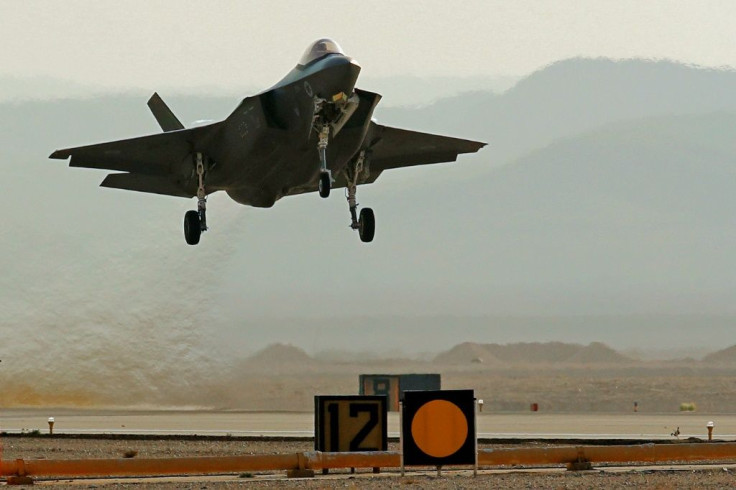Israel Under Attack: IAF Strikes Syria After Missile Launched At Nuclear Reactor
KEY POINTS
- Syrian military claims it launched the missile in response to an IAF bombing near Damascus
- Syria’s state-run news agency says four soldiers wounded in the Israeli strike
- The incident marks the most serious violence between Israel and Syria in years
Israel and Syria moved toward their worst standoff in over a decade when the West Asian neighbors launched missiles into each other's territory Thursday morning and traded blame for the confrontation.
Air raid sirens went off at Israel’s top-secret nuclear facility in Abu Qrenat near Dimona in south Israel after a missile fired from Syria landed in the Negev Desert, Jerusalem Post reported. Israel called it the “longest-range attack by Syria.”
The Israeli military said it hit the missile launcher and air-defense systems in Syria in response to the strike. The Post cited IDF spokesperson Brig.-Gen. Hidai Zilberman as saying that the explosion occurred due to the launch of an SA-5 surface-to-air missile fired from Syria.
The Israeli military said the missile fired from Syria was one of several launched toward an Israeli aircraft. It said it responded by hitting several air defense batteries in Syria. The military did not say whether its missile-defense system intercepted the missile from Syria. But there was no damage, it said.

On the other hand, the Syrian military claimed that it launched the missile in response to an Israeli Air Force bombing near Damascus. According to Syria’s state-run SANA news agency, four soldiers were wounded in the Israeli strike, which also caused some “material damage.” It said that “most of the enemy missiles” were launched from the Israeli-annexed Golan Heights.
Several reports suggested that the Syrian strike likely involved Iran, which maintains troops and proxies in Syria. Tehran has accused Israel of attacks on its nuclear facilities, including sabotage at its Natanz nuclear enrichment plant on April 11. An Iranian official had said that thousands of machines used to refine nuclear material at Natanz were damaged or destroyed.
Alireza Zakani, head of the Iranian Parliament's Research Centre, was quoted as saying by the BBC that the Natanz strike had "eliminated" Tehran's ability to carry out the process. Blaming the attack on Israel, Iran said that it would begin enriching uranium up to 60% purity.
Speculation over Iranian involvement was fuelled by an opinion piece published in the hardline Kayhan newspaper last weekend, in which analyst Sadollah Zarei indicating that the Dimona facility may be targeted after the attack on Natanz, Politico reported.
A similar incident involving Israel and Syria took place on Sept. 6, 2007. Known as “Operation Outside the Box,” an Israeli airstrike was ordered on a suspected nuclear reactor in Syria’s Deir ez-Zor region just after midnight. Israel and the U.S. did not announce the secret raids for seven months.
Syria denied it was a nuclear facility with a military purpose. A later investigation by the International Atomic Energy Agency (IAEA) in 2009 reported evidence of uranium and graphite and that the site looked like an undeclared nuclear reactor. It also said that Syria didn’t cooperate with the IAEA investigation.
© Copyright IBTimes 2024. All rights reserved.





















